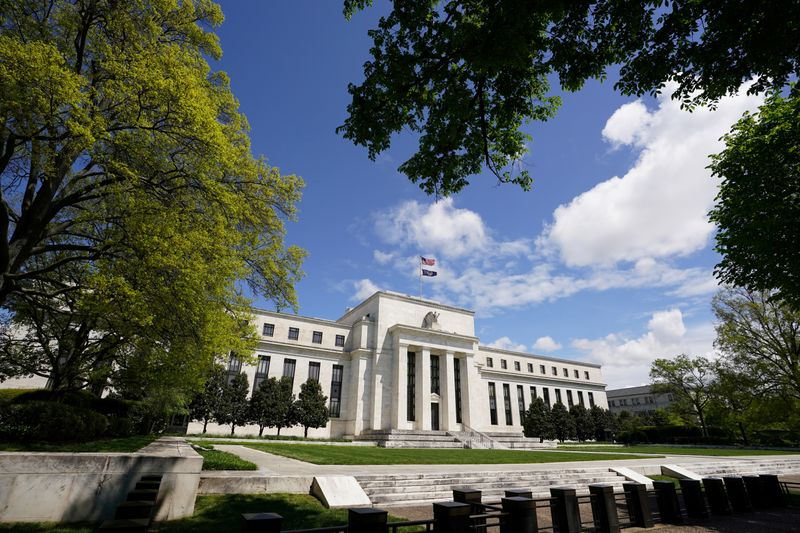By Matt Scuffham
NEW YORK (Reuters) - The U.S. stock market pullback has raised hopes that the Federal Reserve will ramp up asset purchases to boost the economy, but the sell-off was not steep enough to warrant any action, according to market participants, strategists and an advisor to the U.S. Treasury.
What is more likely is for the Federal Open Market Committee (FOMC), which will meet on Tuesday and Wednesday to set U.S. monetary policy, to switch its Treasury purchases toward more long-dated debt to keep long-term yields low, some strategists said.
The Fed can increase the assets it holds during times of stress to stimulate the economy, or sell them when the economy is in danger of overheating. It has boosted its balance sheet from $4 trillion to $7 trillion since the coronavirus outbreak.
A technology-driven stock rally had lifted the benchmark S&P 500 (SPX) 15% since the beginning of July to its peak close on Sept. 2. The Nasdaq Composite index (IXIC) rose 21% over the same period.
However, a brutal sell-off in heavyweight tech stocks pushed the Nasdaq into correction territory on Tuesday, commonly defined as a fall of 10% or more from a recent peak. Since then, the market has partially stabilized.
Ajay Rajadhyaksha, head of macro research at Barclays (LON:BARC) Plc, said it would take another sudden and dramatic fall in markets before the Fed would even consider stepping up its buying.
"The Fed will have no issues with the level of equities at this point," said Rajadhyaksha, who is on a committee that advises the U.S. Treasury on debt management and the economy. "I think that you would need them to fall another 10%, at least, quickly, before the Fed even starts to take notice."
Gennadiy Goldberg, U.S. rates strategist at TD Securities, also said equity sell-offs would not concern the Fed.
"A few declines after a massive rally is really not going to do it for them. They are looking for signs of instability," he said.
Some investors were looking for increased Fed buying to support the market.
Troy Gayeski, co-chief investment officer at SkyBridge, an alternative investments firm, said the fact the Fed's balance sheet had remained static for 12 weeks was part of the reason for investor caution.
"Unless we get another round of balance sheet expansion and another re-acceleration of money supply growth then markets are going to be much more two way and volatile," he said.
The Fed has slowed purchases of Treasuries and mortgage-backed debt as markets recover from chronic liquidity problems in March, when panic over the coronavirus sent stocks tumbling and resulted in logjams across debt markets.
It has bought around $190 billion of these securities in the past month, compared with as much as $125 billion a day during the worst of the panic in March.
The Fed has also reduced its average daily corporate bond purchases from around $300 million, when the program was introduced in May, to $26 million last week, as credit spreads have tightened.
The Fed last stepped up its corporate debt buying in June, which came after equity market sell-offs and widening investment grade credit spreads.
A decline in repo loans that were increased to loosen funding conditions during the market rout has kept the Fed's balance sheet steady at around $7 trillion since May, even as debt purchases continue at lower levels.
The Fed has committed to buying at least $120 billion monthly in Treasury and mortgage-backed assets and pledged it would do whatever was needed to ensure liquidity remains in the market.
